![[FREE IRAN Project] In The Spirit Of Cyrus The Great Forum Index](http://www.activistchat.com/images/ActivistChatStandsLogo.jpg) |
[FREE IRAN Project] In The Spirit Of Cyrus The Great
Views expressed here are not necessarily the views & opinions of ActivistChat.com. Comments are unmoderated. Abusive remarks may be deleted. ActivistChat.com retains the rights to all content/IP info in in this forum and may re-post content elsewhere.
|
| View previous topic :: View next topic |
| Author |
Message |
cyrus
Site Admin

Joined: 24 Jun 2003
Posts: 4993
|
 Posted: Wed Feb 25, 2004 11:18 pm Post subject: U.S. State Dept. Iran Human Rights Report [02/25/2004] Posted: Wed Feb 25, 2004 11:18 pm Post subject: U.S. State Dept. Iran Human Rights Report [02/25/2004] |
 |
|
U.S. State Dept. Iran Human Rights Report [02/25/2004]
Iran
[url=http://www.state.gov/g/drl/rls/hrrpt/2003/27927.htm]Country Reports on Human Rights Practices - 2003
Released by the Bureau of Democracy, Human Rights, and Labor
February 25, 2004[/url]
Please Visit U.S. State Dept. Source :
http://www.state.gov/g/drl/rls/hrrpt/2003/27927.htm
This is very important report please review it carefully and post your comments here. |
|
| Back to top |
|
 |
cyrus
Site Admin

Joined: 24 Jun 2003
Posts: 4993
|
 Posted: Wed Feb 25, 2004 11:39 pm Post subject: Mr. Armitage "Sort Of Democracy" [1] Posted: Wed Feb 25, 2004 11:39 pm Post subject: Mr. Armitage "Sort Of Democracy" [1] |
 |
|
Mr. Armitage "Sort Of Democracy" [1]
Please Visit Source U.S. State Dept. :
http://www.state.gov/g/drl/rls/hrrpt/2003/27927.htm
This is very important report please review it carefully and post your comments here.
| Quote: | | The Government's poor human rights record worsened, and it continued to commit numerous, serious abuses. The right of citizens to change their government was restricted significantly. Continuing serious abuses included: summary executions; disappearances; torture and other degrading treatment, reportedly including severe punishments such as beheading and flogging; poor prison conditions; arbitrary arrest and detention; lack of habeas corpus or access to counsel and prolonged and incommunicado detention. Citizens often did not receive due process or fair trials. The Government infringed on citizens' privacy rights, and restricted freedom of speech, press, assembly, association and religion. |
Last edited by cyrus on Wed Feb 25, 2004 11:48 pm; edited 1 time in total |
|
| Back to top |
|
 |
cyrus
Site Admin

Joined: 24 Jun 2003
Posts: 4993
|
 Posted: Wed Feb 25, 2004 11:46 pm Post subject: Mr. Armitage "Sort Of Democracy" 2 Posted: Wed Feb 25, 2004 11:46 pm Post subject: Mr. Armitage "Sort Of Democracy" 2 |
 |
|
Mr. Armitage "Sort Of Democracy" [2]
Please Visit Source U.S. State Dept. :
http://www.state.gov/g/drl/rls/hrrpt/2003/27927.htm
This is very important report please review it carefully and post your comments here.
| Quote: | Section 1 Respect for the Integrity of the Person, Including Freedom From:
a. Arbitrary or Unlawful Deprivation of Life
There were reports of political killings. The Government was responsible for numerous killings during the year, including executions following trials in which there was a lack of due process. Government affiliated vigilante groups also were responsible for extrajudicial killings.
The law criminalized dissent and applied the death penalty to offenses such as "attempts against the security of the State, outrage against high-ranking officials, and insults against the memory of Imam Khomeini and against the Supreme Leader of the Islamic Republic." Citizens continued to be tried and sentenced to death in the absence of sufficient procedural safeguards.
Exiles and human rights monitors alleged that many of those supposedly executed for criminal offenses, such as narcotics trafficking, actually were political dissidents. Supporters of outlawed political groups, or in the case of the Mujahedin-e Khalq, a terrorist organization, were believed to constitute a large number of those executed each year.
In July, an Iranian-Canadian photographer, Zahra Kazemi, died in custody after being arrested for taking photographs at Evin prison in Tehran. After initially claiming that she had died as a result of a stroke, the Government subsequently admitted that she died as a result of a blow to the head and charged individuals involved in her detention. The Government also denied Canada's request, based on her son's statement, that Kazemi's remains be sent to Canada for further autopsy and burial. The Government claimed to be following the wishes of her mother that she be buried in the country, but the mother later said that she was coerced into making the request.
Two political activists associated with the outlawed Komala party, Sassan al-Kanaan and Mohammad Golabi, were executed in February and March. The Democratic Party of Iranian Kurdistan (KDPI), an opposition party, alleged that the Government executed party member Jalil Zewal in December, after 9 years in prison during which he was reportedly subjected to torture. KDPI member Ramin Sharifi was also executed in December after his arrest in July. Mohammad Golabi was reportedly tortured while in detention. Sassan al-Kanaan's execution was reportedly carried out while his mother was in Tehran meeting on his behalf with the U.N. Working Group on Arbitrary Detention. KPI reports that hard-line vigilante groups killed at least seven other Kurdish civilians were killed during the year.
The 1998 murders of prominent political activists Darioush and Parvaneh Forouhar, writers Mohammad Mokhtari and Mohammad Pouyandeh, and the disappearance of political activist Pirouz Davani continued to cause controversy about what is perceived to be the Government's cover-up of involvement by high-level officials. Prominent investigative journalist Akbar Ganji, who was arrested in 2000 and sentenced to 6 years in prison for his reporting on the case, remained in prison (see Sections 1.d. and 1.e.). In 2001, the Special Representative for Iran of the Commission on Human Rights (UNSR) also reported claims that there were more than 80 killings or disappearances over a 10-year period as part of a wider campaign to silence dissent. Members of religious minority groups, including the Baha'is, evangelical Christians, and Sunni clerics were killed in recent years, allegedly by government agents or directly at the hands of authorities. |
|
|
| Back to top |
|
 |
cyrus
Site Admin

Joined: 24 Jun 2003
Posts: 4993
|
 Posted: Wed Feb 25, 2004 11:54 pm Post subject: Torture and Other Cruel, Inhuman, or Degrading Treatment Or Posted: Wed Feb 25, 2004 11:54 pm Post subject: Torture and Other Cruel, Inhuman, or Degrading Treatment Or |
 |
|
Please Visit Source U.S. State Dept. :
http://www.state.gov/g/drl/rls/hrrpt/2003/27927.htm
This is very important report please review it carefully and post your comments here.
| Quote: | c. Torture and Other Cruel, Inhuman, or Degrading Treatment or Punishment
The Constitution forbids the use of torture; however, there were numerous credible reports that security forces and prison personnel continued to torture detainees and prisoners. Some prison facilities, including Tehran's Evin prison, were notorious for the cruel and prolonged acts of torture inflicted upon political opponents of the Government. Common methods included suspension for long periods in contorted positions, burning with cigarettes, sleep deprivation, and most frequently, severe and repeated beatings with cables or other instruments on the back and on the soles of the feet. Prisoners also reported beatings about the ears, inducing partial or complete deafness, and punching in the eyes, leading to partial or complete blindness.
In August, the Council of Guardians rejected a bill on accession to the U.N. Convention against Torture and Other Cruel, Inhuman, or Degrading Treatment or Punishment. The Majlis amended the bill in late December, reportedly addressing Council of Guardians concerns over the monetary costs of joining the convention. The Council of Guardians also rejected in mid-2002 a bill passed by the Majlis to end torture and forced confessions.
In July 2002, in an effort to combat "un-Islamic behavior" and social corruption among the young, the Government announced the formation of a new "morality force." The force was meant to enforce the Islamic Republic's strict rules of moral behavior. Press reports indicated that members of this force chased and beat persons in the streets for offenses such as listening to music, or in the case of women, wearing makeup or clothing that was not modest enough (see Section 1.f.). While not uniformly enforced, in November, 7 women in Shiraz were reportedly sentenced to 50 lashes for disrespectful behavior during the month of Ramadan.
In March, activist Siamak Pourzand was re-imprisoned after his provisional release in November 2002. After his arrest in 2001, Siamak Pourzand was tried in March 2002 behind closed doors and sentenced to 11 years in prison for "undermining state security through his links with monarchists and counter-revolutionaries." Press reports said that he had confessed to his crimes at his trial, but his wife claimed that the confession was extracted under duress. Pourzand suffered severe health problems while held incommunicado, reportedly including a heart attack, and was allegedly denied proper medical treatment. At year's end, he remained in jail.
In April, Former Deputy Prime Minister and longtime political dissident, Abbas Amir-Entezam was re-imprisoned, after his release in 2002 for medical reasons. Amir-Entezam was reportedly incarcerated for calling for a referendum on whether the country should remain under clerical rule during a speech at Tehran University. He was reportedly a frequent victim of torture in prison and has had numerous medical problems as a result, including a ruptured eardrum due to repeated beatings, kidney failure resulting from denial of access to toilet facilities, and an untreated prostate condition. He reported having been taken on numerous occasions before a firing squad (see Section 1.e.).
In July, an Iranian-Canadian photographer, Zahra Kazemi, died in custody as a result of a blow to the head (see Section 1.a.).
In November, four men were reportedly sentenced to death by stoning for involvement in kidnapping and rape. In December 2002, the Government officially suspended the practices of amputation and lapidation or stoning--a form of capital punishment for adultery and other crimes, although the law has not been rescinded.
During the year, Amnesty International (AI) reported at least six cases of amputation.
Prison conditions in the country were poor. Some prisoners were held in solitary confinement or denied adequate food or medical care to force confessions. After its February visit, the U.N. Working Group on Arbitrary Detentions reported that "for the first time since its establishment, [the Working Group] has been confronted with a strategy of widespread use of solitary confinement for its own sake and not for traditional disciplinary purposes." The Working Group described Sector 209 of Evin Prison as a "prison within a prison," designed for the "systematic, large-scale use of absolute solitary confinement, frequently for long periods."
The 2001 report by the UNSR noted a significant increase in the prison population and reports of overcrowding and unrest. In March, the nongovernmental organization (NGO) Penal Reform International (PRI) reported that 180,000 prisoners occupied facilities constructed to hold a maximum of 65,000 persons. In July, the head of the National Prisons Organization (NPO) assessed the number of prisoners at 156,000.
The UNSR reported that much of the prisoner abuse occurred in unofficial detention centers run by the secret service and military. The UNSR further reported that the unofficial detention centers were to be brought under the control of the NNPO during 2001; however, November press reports indicated that a number of unofficial detention centers continued to operate outside NPO control. The U.N. Working Group on Arbitrary Detention raised this issue with the country's Article 90 Parliamentary Commission, generating a Commission inquiry that reportedly confirmed the existence of numerous unofficial prisons.
In March, PRI announced a cooperative initiative with authorities to improve prison conditions through workshops and training of judges and prison administrators. The report of the U.N. Working Group on Arbitrary Detention noted that the judicial authorities expressed the need for prison reform, but observed that implementation had been limited.
The Government generally has not granted access to human rights monitors other than the International Committee of the Red Cross (ICRC); however, it permitted visits to imprisoned dissidents by U.N. human rights officials during the year (see Section 4). U.N. Working Group on Arbitrary Detention officials visited Evin prison in Tehran--including sector 209, in which many political prisoners were believed held--as well as Esfahan and Shiraz prisons, the Shiraz military prison, and police stations in each city. The Working Group interviewed approximately 140 "ordinary" prisoners plus 14 out of a requested 45 inmates described as political prisoners and prisoners of conscience. The Working Group described the authorities' cooperation as "on the whole positive," although it noted problems with fulfillment of follow-up requests generated by the visit and disappointment over arrests carried out after the Group's departure. Following his November visit to the country, the UNSR for the Promotion and Protection of the Right to Freedom of Opinion and Expression noted that his delegation met with almost 40 dissidents, both in and out of prison. |
|
|
| Back to top |
|
 |
cyrus
Site Admin

Joined: 24 Jun 2003
Posts: 4993
|
 Posted: Thu Feb 26, 2004 12:07 am Post subject: d. Freedom of Movement Within the Country, Foreign Travel .. Posted: Thu Feb 26, 2004 12:07 am Post subject: d. Freedom of Movement Within the Country, Foreign Travel .. |
 |
|
Please Visit Source U.S. State Dept. :
http://www.state.gov/g/drl/rls/hrrpt/2003/27927.htm
This is very important report please review it carefully and post your comments here.
---------------------------------------------
d. Freedom of Movement Within the Country, Foreign Travel, Emigration, and Repatriation
The Government placed some restrictions on these rights. Citizens may travel within the country and change their place of residence without obtaining official permission. The Government required exit permits (a validation stamp in the passport) for foreign travel for draft-age men and citizens who were politically suspect. Some citizens, particularly those whose skills were in short supply and who were educated at government expense, must post bonds to obtain exit permits. The Government restricted the movement of certain religious minorities and several religious leaders (see Sections 1.d. and 2.c.).
Citizens returning from abroad sometimes were subjected to searches and extensive questioning by government authorities for evidence of anti-government activities abroad. Recorded and printed material, personal correspondence, and photographs were subject to confiscation.
The Government permitted Jews to travel abroad, but often denied them multiple-exit permits issued to other citizens. Baha'is often experienced difficulty in obtaining passports.
Women must obtain the permission of their husband, father, or other male relative to obtain a passport. Married women must receive written permission from their husbands before being allowed to leave the country.
The law contains provisions for granting refugee status to persons who meet the definition in the 1951 U.N. Convention Relating to the Status of Refugees and its 1967 Protocol. There were no reports of the forced return of persons to a country where they feared persecution; however, there were reports that the Government deported refugees deemed "illegal" entrants into the country. In times of economic uncertainty, the Government increased pressure on refugees to return to their home countries. The Government generally cooperated with the U.N. High Commissioner for Refugees (UNHCR) and other humanitarian organizations in assisting refugees.
The country hosted a large refugee population, mostly Afghans, as well as a significant number of Iraqis. At year's end, UNHCR estimated that approximately 1 million refugees from Afghanistan remained in the country. Up to 500,000 Afghan refugees have returned to Afghanistan since early 2002, including approximately 100,000 during the first half of the year, according to UNHCR. The Government denied UNHCR concerns that the Government was pressing them to leave. Most refugees subsisted on itinerant labor. The Government accused many Afghans of involvement in drug trafficking. After the September 2001 terrorist attacks, the Government sealed its border in anticipation of a war in Afghanistan and a resulting wave of refugees. The Government set up several refugee camps just inside Afghanistan to deal with the crisis.
The UNHCR estimated that there were approximately 200,000 Iraqi refugees in the country, the majority of whom were Iraqi Kurds, but also including Shi'a Arabs. Iraq expelled many of the Iraqi refugees at the beginning of the Iran-Iraq war because of their suspected Iranian origin. In numerous instances, both the Iraqi and Iranian Governments disputed their citizenship, rendering many of them stateless. Other Iraqi refugees arrived following Iraq's invasion of Kuwait in 1990. During the year, the Government took substantial steps to prepare for the possibility of new Iraqi refugees, but significant outflows never appeared. In November, UNHCR initiated a pilot repatriation of refugees from the country and had repatriated a few hundred to Iraq by early December. According to press reports, refugee officials speculated that up to three-quarters of the 200,000 refugees in the country may have crossed back into Iraq without formal assistance since April.
Although the Government claimed to host more than 30,000 refugees of other nationalities, including Tajiks, Bosnians, Azeris, Eritreans, Somalis, Bangladeshis, and Pakistanis, it did not provide information about them or allow the UNHCR or other organizations access to them.
Section 3 Respect for Political Rights: The Right of Citizens to Change Their Government
The right of citizens to change their government is restricted significantly. The Supreme Leader, the recognized Head of State, is elected by the Assembly of Experts, and can only be removed by a vote of this same Assembly. The Assembly itself is restricted to clerics, who serve an 8-year term and are chosen by popular vote from a list approved by the Government. There is no separation of state and religion, and clerical influence pervades the Government, especially in appointed, rather than elected, positions. The Government effectively controlled the selection of candidates for elections. The Council of Guardians, which reviews all laws for consistency with Islamic law and the Constitution, also screens candidates for election for ideological, political, and religious suitability. It accepts only candidates who support a theocratic state; clerics who disagree with government policies or with a conservative view of the Islamic state also have been disqualified. Two bills approved by the Majlis in late 2002 to expand presidential power and limit the Council of Guardian's ability to disqualify candidates were rejected by the Council of Guardians at mid-year.
Regularly scheduled elections are held for the Presidency, the Majlis, and the Assembly of Experts. Mohammad Khatami, a former Minister of Culture and Islamic Guidance who was impeached in 1992 by the Majlis for "liberalism" and "negligence," was elected President in 1997 and reelected in 2001 with 77 percent of the vote. The UNSR reported that the Guardian Council significantly limited the number of candidates permitted to run in elections and noted that the Interior Minister denounced the "unprincipled disqualification" of candidates.
Elections were held in the fall of 1998 for the 86-member Assembly of Experts. The Council of Guardians disqualified numerous candidates, which led to criticism from many observers that the Government improperly predetermined the election results.
Elections were last held for the 290-seat Majlis in 2000 and were scheduled to be held again in February 2004. Of more than 6,000 candidates, the Council of Guardians disqualified 576 before the 2000 elections, a substantial decrease from the 44 percent of candidates disqualified before the 1996 elections. Most of those disqualified were outspoken advocates of political reform, including some of the most prominent supporters of President Khatami. In 2001, by-elections were held for vacant Majlis seats. The Council of Guardians reportedly disqualified 100 potential candidates, more than one-quarter of those wishing to run. Furthermore, the Supreme Leader and other conservatives within the Government used constitutional provisions to block much of the early reform legislation passed by the Majlis.
In 1999, elections for nationwide local councils were held for the first time since the 1979 revolution. Government figures indicated that roughly 280,000 candidates competed for 130,000 council seats across the nation. Women were elected to seats in numerous districts. However, the Councils did not appear to wield significant autonomy or authority. A second series of municipal council elections took place in February. A combination of low voter turnout (below 50 percent) and popular dissatisfaction with both the performance of the councils and the record of reformists swept many reformists from office.
Women held 9 out of 290 Majlis seats. There were no female cabinet members, although several held high-level positions, such as Vice-President, and a woman served as Presidential Adviser for Women's Affairs, and another as head of the Environmental Protection Agency.
Majlis seats were reserved for elected Christian (three), Jewish (one) and Zoroastrian (one) deputies. Religious minorities were barred from being elected to any other seats on a representative body and from holding senior government or military positions.
Section 4 Governmental Attitude Regarding International and Nongovernmental Investigation of Alleged Violations of Human Rights
The Government continued to restrict the work of local human rights groups. The Government denies the universality of human rights and has stated that human rights issues should be viewed in the context of a country's "culture and beliefs."
Various professional groups representing writers, journalists, photographers, and others attempted to monitor government restrictions in their fields, as well as harassment and intimidation against individual members of their professions. However, their ability to meet, organize, and effect change was curtailed severely by the Government. There were domestic NGOs working in areas such as health and population, women and development, youth, environmental protection, human rights, and sustainable development. Some reports estimate a few thousand local NGOs currently in operation.
International human rights NGOs such as HRW and AI were not permitted to establish offices in or conduct regular investigative visits to the country. Authorities barred HRW and AI representatives from attending the European Union's late 2002 human rights talks in Tehran, despite the EU's invitation. An October EU-Iran human rights dialogue was held in Brussels to facilitate the participation of NGO representatives. The Government also opened a human rights dialogue with Australia in 2002 and with Switzerland in October.
The ICRC and the UNHCR both operated in the country. However, the Government did not allow the UNSR to visit the country from 1997 to 2001, the last year his mandate to monitor human rights in the country was in effect. The Government allowed two visits by U.N. human rights representatives during the year, one by the UNSR for the Promotion and Protection of the Right to Freedom of Opinion and Expression and one by a U.N. Working Group on Arbitrary Detention. In December, the Plenary of the U.N. 58th General Assembly adopted a resolution condemning the country for human rights abuses, include public executions, amputation, torture, suppression of free speech, and discrimination against women and minorities.
The Islamic Human Rights Commission (IHRC) was established in 1995 under the authority of the head of the judiciary, who sits on its board as an observer. In 1996 the Government established a human rights committee in the Majlis, the Article 90 Commission, which receives and considers complaints regarding violations of constitutional rights. However, many observers believed that these committees lacked independence.
In October, the Article 90 Commission issued a report on the death in custody of Iranian-Canadian photojournalist Zahra Kazemi. The report identified Tehran's Chief Prosecutor and other members of the judiciary as being directly involved in subjecting Kazemi to violent interrogations in Evin Prison, and later attempting to cover up the cause of her death. The report noted that Kazemi had applied for and received official government permission to act as a journalist and photographer while in the country. The Article 90 Commission findings reportedly dismissed allegations of MOIS involvement in Kazemi's death, though an MOIS officer was charged with her murder.
In October, lawyer and human rights activist Shirin Ebadi was awarded the Nobel Peace Prize for her work in advancing human rights both in the country and internationally. Ms. Ebadi, who served as one of the first female judges in the country before being forced to resign after the revolution, has campaigned on behalf of women, children, and victims of government repression. She represented the family of Darius and Parvaneh Forouhar, killed in 1998, and of a student killed during the 1999 student protests, which exposed links between vigilante groups and government officials and led to her arrest in 2000. Ms. Ebadi is a founder of the Center for the Defense of Human Rights, which represents defendants in political cases. She has also agreed to represent the family of Ms. Kazemi.
Section 5 Discrimination Based on Race, Sex, Disability, Language, or Social Status
In general the Government did not discriminate on the basis of race, disability, language, or social status; however, it discriminated on the basis of religion, sex, and ethnicity. Kurds, Azeris, and Ahwazi Arabs were not allowed to study their languages.
Women
Although spousal abuse and violence against women occurred, statistics were not available. Abuse in the family was considered a private matter and seldom was discussed publicly. Rape is illegal, and subject to strict penalties, but remained a widespread problem. The UNSR published statistics provided by the IHRC indicating that, at the end of 2001, an estimated 1,000 of approximately 3,000 active files were related to women's issues.
Prostitution was illegal. Accurate information regarding the extent of the problem was not widely available, although the issue received greater attention as a result of the public's growing interest in social problems. Press reports described prostitution as a widespread problem.
Provisions in the Islamic Civil and Penal Codes, in particular those sections dealing with family and property law, discriminate against women. Shortly after the 1979 revolution, the Government repealed the Family Protection Law, a hallmark bill adopted in 1967 that had given women increased rights in the home and workplace, and replaced it with a legal system based largely on Shari'a practices. In 1998, the Majlis passed legislation that mandated segregation of the sexes in the provision of medical care. In August, the Guardian Council rejected a bill that would require the country to adopt U.N. conventions on eliminating torture and ending discrimination against women.
Even though the law permits it, marriage at the minimum age of 9 was rare. In mid-2002, authorities approved a law that requires court approval for the marriage of girls below the age of 13 and boys younger than 15. All women must have the permission of their father or a male relative to marry. The law allowed for the practice of temporary marriages based on a Shi'a custom in which a woman or a girl may become the wife of a married or single Muslim male after a simple and brief religious ceremony. The temporary marriage may last any length of time. According to Shi'a Islamic law, men may have as many temporary wives as they wish. Such wives are not granted rights associated with traditional marriage.
The Penal Code includes provisions for the stoning of women and men convicted of adultery, although judges were instructed at the end of 2002 to cease imposing such sentences (see Section 1.c.). Women have the right to divorce if their husband has signed a contract granting that right or if the husband cannot provide for his family, is a drug addict, insane, or impotent. However, a husband is not required to cite a reason for divorcing his wife. In December 2002, a new law made the adjudication of cases in which women demand divorces less arbitrary and less costly.
A widely used model marriage contract limits privileges accorded to men by custom, and traditional interpretations of Islamic law recognize a divorced woman's right to a share in the property that couples acquire during their marriage and to increased alimony. Women who remarry are forced to give the child's father custody of children from earlier marriages. However, the law granted custody of minor children to the mother in certain divorce cases in which the father is proven unfit to care for the child. In November, women were granted the right to custody of both male and female children up to 7 years of age; previously divorced women were allowed to retain custody over boys only until 2two years of age.
The testimony of a woman is worth half that of a man in court. The "blood money" paid to the family of a female crime victim is half the sum paid for a man. A married woman must obtain the written consent of her husband before traveling outside the country (see Section 2.d.).
Women had access to primary and advanced education; however, social and legal constraints limited their professional opportunities. Women were represented in many fields of the work force, and the Government has not prevented women from entering many traditionally male-dominated fields. However, women are barred from seeking the presidency and from appointment to the judiciary. The law provides maternity, child care, and pension benefits.
The Government enforced gender segregation in most public spaces, and prohibited women from mixing openly with unmarried men or men not related to them. Women must ride in a reserved section on public buses and enter public buildings, universities, and airports through separate entrances. Women were prohibited from attending male sporting events, although this restriction did not appear to be enforced universally. While the enforcement of conservative Islamic dress codes varied, what women wore in public was not entirely a matter of personal choice. The authorities sometimes harassed women if their dress or behavior was considered inappropriate, and women may be sentenced to flogging or imprisonment for such violations (see Section 1.c.). The law prohibits the publication of pictures of uncovered women in the print media, including pictures of foreign women. There are penalties for failure to observe Islamic dress codes at work.
Children
There is little current information available to assess Government efforts toward assuring the welfare of children. Except in isolated areas of the country, children had access to free education through the 12th grade (compulsory to age 11), and to some form of health care.
There was not enough information available to reflect how the Government dealt with child abuse (see Sections 6.c. and 6.d.).
Persons with Disabilities
There is no current information available regarding whether the Government has legislated or otherwise mandated accessibility for persons with disabilities, or whether discrimination against persons with disabilities is prohibited.
National/Racial/Ethnic Minorities
The Kurds sought greater autonomy from the central Government and continued to suffer from government discrimination. Sunni Kurdish tensions with the Shi'a dominated government predate the 1979 revolution. Kurds often were suspected of harboring separatist or foreign sympathies. These suspicions have led to sporadic outbreaks of fighting between government forces and Kurdish groups. In recent years, greater Kurdish cultural expression has been allowed and Kurdish publications and broadcasting have expanded. However, there was still no public school education in the Kurdish language.
The KDPI claimed that the Government executed at least four Kurdish party members and activists during the year. According to KDPI, plainclothes vigilantes in five separate attacks killed seven more Kurds during the year (see Section 1.a.). Other activists were reported imprisoned.
Azeris comprise roughly one-quarter of the country's population and are well integrated into the Government and society. The Supreme Leader is of Azeri descent, but complained of ethnic and linguistic discrimination, including banning the Azeri language in schools, harassing Azeri activists or organizers, and changing Azeri geographic names. The Government traditionally viewed Azeri nationalism as threatening, particularly since the dissolution of the Soviet Union and the creation of an independent Azerbaijan. Azeri groups also claimed that there were a number of Azeri political prisoners jailed for advocating cultural and language rights for Iranian Azerbaijanis. The Government has charged several of them with "revolting against the Islamic state."
Foreign representatives of the Ahwazi Arabs of Khuzistan, whose numbers could range as high as 4 million or more, claimed that their community in the southwest of the country suffered from discrimination, including the right to study and speak Arabic. In July, authorities reportedly closed two bilingual Arabic/Farsi newspapers, and imprisoned scores of political activists. They asserted that the Government has ignored their appeals to de-mine the vast stretches of Khuzistan, mined during the Iran-Iraq War. They further stated that many Arabs, both Shi'a and Sunni, have been imprisoned and tortured for criticizing government policies. According to Ahwazi sources, political activist with the Islamic Wafagh Party, Kazem Mojaddam, was sentenced to 2 years imprisonment in November after his initial arrest in June on charges of secession and endangering internal security.
Section 6 Worker Rights
a. The Right of Association
The Labor Code provides workers the right to establish unions; however, the Government did not allow independent unions to exist. A national organization known as the Workers' House was the sole authorized national labor organization. It served primarily as a conduit for the Government to exert control over workers. The leadership of the Workers' House coordinated activities with Islamic labor councils, which were made up of representatives of the workers and one representative of management in industrial, agricultural, and service organizations of more than 35 employees. These councils also functioned as instruments of government control, although they frequently were able to block layoffs and dismissals.
According to the International Confederation of Free Trade Unions (ICFTU), the role of the Worker's House changed in recent years, and there was more tolerance of workers' organizations, which included four nurses organizations, a health workers' union, and a textile workers' union. The report also notes that a 2000 law exempted companies with up to five employees from the need to comply with labor legislation for 6 years. This law affected approximately 3 million workers, making them easier to hire and fire. The Labor Code allows employers and employees to establish guilds. The guilds issued vocational licenses and helped members find jobs. Instances of late or partial pay for government workers reportedly were common.
There were no known affiliations with international labor organizations.
b. The Right to Organize and Bargain Collectively
Workers did not have the right to organize independently and negotiate collective bargaining agreements. The ICFTU noted that the presence of security/intelligence forces in the workplace, as well as increasing use of temporary contracts, acted as obstacles to organizing.
The law prohibits public sector strikes and the Government did not tolerate any strike deemed to be at odds with its economic and labor policies; however, strikes occurred. In addition to strikes, there were also work stoppages and protests by oil, textile, electrical manufacturing, and metal workers, as well as by the unemployed. Many of these protests were due to non-payment of wage arrears, according to the ICFTU. In May, textile workers in Behshar staged a hunger strike to protest non-payment of overdue wages. Teachers staged demonstrations and sit-ins in several cities during the year for improved working conditions and wage benefits.
It is not known whether labor legislation and practice in the export processing zones (EPZs) differ from the law and practice in the rest of the country. According to the ICFTU, labor legislation did not apply in the EPZs.
c. Prohibition of Forced or Bonded Labor
The Penal Code provides that the Government may require any person who does not have work to take suitable employment; however, this did not appear to be enforced regularly. The International Labor Organization (ILO) has criticized this provision frequently as contravening ILO Convention 29 on forced labor. The law prohibits forced and bonded labor by children; however, this was not enforced adequately, and such labor by children was a serious problem.
d. Status of Child Labor Practices and Minimum Age for Employment
The law prohibits forced and bonded labor by children; however, there appears to be a serious problem with child labor. The Labor Law prohibits employment of minors less than 15 years of age and places restrictions on the employment of minors under age 18; however, laws pertaining to child labor were not enforced adequately. The law permits children to work in agriculture, domestic service, and some small businesses. The law prohibits the employment of women and minors in hard labor or night work. Information regarding the extent to which these regulations were enforced was not available.
e. Acceptable Conditions of Work
The Labor Code empowers the Supreme Labor Council to establish annual minimum wage levels for each industrial sector and region; however, no information was available regarding mechanisms used to set wages. It was not known if the minimum wages were adjusted annually or enforced. The Labor Code stipulates that the minimum wage should be sufficient to meet the living expenses of a family and should take inflation into account. However, under poor economic conditions, many middle-class citizens must work at two or three jobs to support their families.
The Labor Code establishes a maximum 6-day, 48-hour workweek, with 1 weekly rest day, normally Fridays, and at least 12 days of paid annual leave and several paid public holidays.
According to the Labor Code, a Supreme Safety Council, chaired by the Labor Minister or his representative, is responsible for promoting workplace safety and health. Labor organizations outside the country have alleged that hazardous work environments were common in the country and have resulted in thousands of worker deaths per year. It was not known how well the Ministry's inspectors enforced regulations. It was not known whether workers could remove themselves from hazardous situations without risking the loss of employment.
f. Trafficking in Persons
The law does not specifically prohibit trafficking in persons, and persons reportedly were trafficked to, through, and from the country during the year. It was difficult to measure the extent of the Government's efforts to curb human trafficking, but national and international press reporting indicated that Tehran has taken action against bandits involved in abducting women and children and pursued agreements with neighboring states to curb human trafficking. The Government has also reportedly arrested, convicted, and executed numerous human trafficking offenders. During the year, police reportedly arrested numerous members of prostitution rings and closed down brothels.
In April, a court in Mashhad reportedly sentenced 53 individuals to 281 years in prison and 222 lashes on charges of abduction and slavery for trafficking scores of young girls to Pakistan.
----------
1. The United States does not have an embassy in Iran. This report draws heavily on non-U.S. Government sources.
This site is managed by the Bureau of Public Affairs, U.S. Department of State.
External links to other Internet sites should not be construed as an endorsement of the views contained therein. |
|
| Back to top |
|
 |
cyrus
Site Admin

Joined: 24 Jun 2003
Posts: 4993
|
 Posted: Thu Feb 26, 2004 12:36 am Post subject: A Plea for Justice - Wanted These Evil Faces Posted: Thu Feb 26, 2004 12:36 am Post subject: A Plea for Justice - Wanted These Evil Faces |
 |
|
A Plea for Justice - Wanted These Evil Faces Of Virus For Crimes Against Humanity
Over the past 25 years the Islamic regime's agents, courts, judges and
vigilantes have all committed acts of: murder, stoning, torture, assault,
theft, destruction of property, arson, perjury, falsification of testimonials
and material evidence, illegal surveillance, kidnapping, rape, blackmail,
fraud, obstruction of justice, conspiracy to commit all of the above crimes,
cover-ups and every other form of butchery and depredation.
    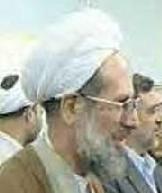
    
    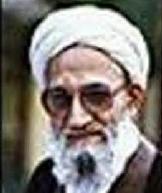
 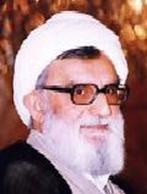 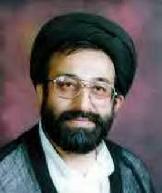 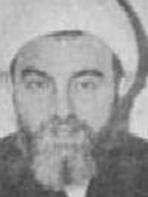 
   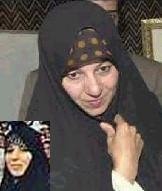 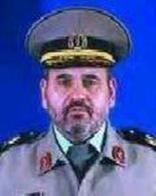
 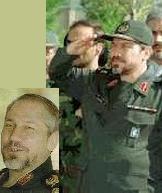  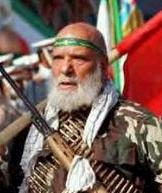 
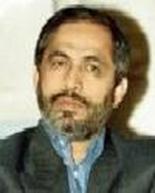 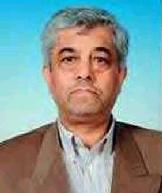  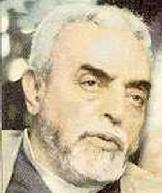 
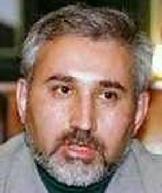  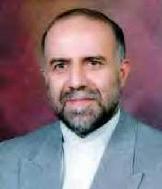  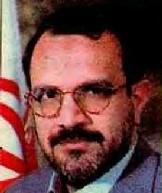
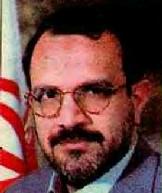    
This is the tip of Iceberg:
 

[url=http://www.petitiononline.com/bamquake/petition.html]Please Sign Important PLEA FOR JUSTICE - BAM QUAKE GENOCIDE Petition
To Show the World Our Unity, Solidarity and Determination For Free Referendum In Iran Now With BIG NO to any kind of Islamic Regime Election Game, Victory Is Ours! [/url]
 |
|
| Back to top |
|
 |
cyrus
Site Admin

Joined: 24 Jun 2003
Posts: 4993
|
 Posted: Fri Feb 27, 2004 2:25 am Post subject: Islamic Clerical Regime Criminal Records and Victims Posted: Fri Feb 27, 2004 2:25 am Post subject: Islamic Clerical Regime Criminal Records and Victims |
 |
|
The Islamic Clerical regime criminal records in past 25 years in Iran are as follows:
- Torture of all political prisoners.
- Over 120,000 of political prisoners execution.
- Rape and execution of young girls in prison.
- Executions in public.
- The stoning of women.
- Cutting hands as a barbaric punishment for stealing a bag of rice while Clerics in Iran stealing by billions with the help of British, French and Swiss bankers.
- War, destruction of Iranian cities and over 1,000,000 victims.
- Killing 3 former Iran's Prime Ministers, many former Iranian Generals and ministers.
- The theft of billions of dollars by Rafsanjani , SS Clergymen and their terror Masters Mafia gangs.
- Forcing Islamic dress code for women.
- Forcing their religion to the Iranian by violence.
- Loss of all social freedoms and invaded all privacy.
- A massive exodus of Iranian refugees throughout the world.
- The hostage crisis, and the demise of a 200 years old friendship between Iran and US.
- Supporting International Terrorism.
- Creating bad image for Freedom and Peace Loving Iranian.
Some Of The Victims in past 25 years:

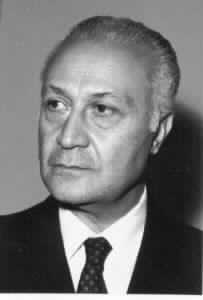 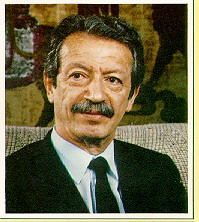  

  
  
   |
|
| Back to top |
|
 |
Spenta

Joined: 04 Sep 2003
Posts: 1829
|
 Posted: Sat Feb 28, 2004 4:11 pm Post subject: Posted: Sat Feb 28, 2004 4:11 pm Post subject: |
 |
|
Shame on the UK, France & Germany for supporting a genocidal, terrorist, sexist, perverted, brutal and horrifying dictatorship and enemy of humanity and Democracy!!!
Ban all products by UK, France & Germany!
Do Not Buy anything made in the UK, France or Germany!
Write to all demanding divesture (just like in South Africa) demanding that they not invest in any British, French or German Companies supporting the terrorist genocidal Mullahs responsible for crimes against humanity, women, children and religious minorities!
Start the following Campaigns:
-Boycott of all British French and German products.
- Divesture Campaign demanding divestment in all British, French and German Companies doing business with the Mullahs
- Take out full page ads in major dailies in the west announcing the Boycott and divesture campaigns!
|
|
| Back to top |
|
 |
Spenta EU Boycott
Guest
|
 Posted: Sat Feb 28, 2004 5:27 pm Post subject: This is very good Idea Posted: Sat Feb 28, 2004 5:27 pm Post subject: This is very good Idea |
 |
|
Iranian, and Iranian-American should support the Boycott idea.
I do not Travel by British Airway anything British.
I do not use British component in my design.
I do not drink French Wine ....
I sold my Mercedes Benz 12 months ago and asking fellow Iranian not to buy Mercedes
This is my top priority to persuade my fellow Iranian to do the same.
We are controlling over $500,000,000,000 , the damage to EU will be far greater than they think. |
|
| Back to top |
|
 |
Boycott EU Goods&Services
Guest
|
 Posted: Sat Feb 28, 2004 5:31 pm Post subject: Re: This is very good Idea Posted: Sat Feb 28, 2004 5:31 pm Post subject: Re: This is very good Idea |
 |
|
| Spenta EU Boycott wrote: | Iranian, and Iranian-American should support the Boycott idea.
I do not Travel by British Airway anything British.
I do not use British component in my design.
I do not drink French Wine ....
I sold my Mercedes Benz 12 months ago and asking fellow Iranian not to buy Mercedes
This is my top priority to persuade my fellow Iranian to do the same.
We are controlling over $500,000,000,000 , the damage to EU will be far greater than they think. |
If this continues I will burn my mercedes benz!! FOR REAL!! |
|
| Back to top |
|
 |
Animal
Guest
|
 Posted: Sat Feb 28, 2004 5:32 pm Post subject: what Posted: Sat Feb 28, 2004 5:32 pm Post subject: what |
 |
|
| What does the EU have that is so good anyways? |
|
| Back to top |
|
 |
Don't Buy From Shell
Guest
|
 Posted: Sat Feb 28, 2004 5:48 pm Post subject: Don't Buy From Shell Gas Station Posted: Sat Feb 28, 2004 5:48 pm Post subject: Don't Buy From Shell Gas Station |
 |
|
| Spenta wrote: | Shame on the UK, France & Germany for supporting a genocidal, terrorist, sexist, perverted, brutal and horrifying dictatorship and enemy of humanity and Democracy!!!
Ban all products by UK, France & Germany!
Do Not Buy anything made in the UK, France or Germany!
Write to all demanding divesture (just like in South Africa) demanding that they not invest in any British, French or German Companies supporting the terrorist genocidal Mullahs responsible for crimes against humanity, women, children and religious minorities!
Start the following Campaigns:
-Boycott of all British French and German products.
- Divesture Campaign demanding divestment in all British, French and German Companies doing business with the Mullahs
- Take out full page ads in major dailies in the west announcing the Boycott and divesture campaigns!
|
AGREE
Don't Buy From Shell Gas Station
Anyone has a good boycott list for British, French and German products and services, please post ? |
|
| Back to top |
|
 |
stefania

Joined: 17 Jul 2003
Posts: 4250
Location: Italy
|
 Posted: Sat Feb 28, 2004 6:28 pm Post subject: Posted: Sat Feb 28, 2004 6:28 pm Post subject: |
 |
|
There are many products from those countries that we use, so that can we boycott everything??
Hey, boycott products from those countries ! Buy American and Italian ! 
_________________
Referendum AFTER Regime Change
"I'm ready to die for you to be able to say your own opinions, even if i strongly disagree with you" (Voltaire) |
|
| Back to top |
|
 |
stefania

Joined: 17 Jul 2003
Posts: 4250
Location: Italy
|
 Posted: Sun Feb 29, 2004 3:47 pm Post subject: Posted: Sun Feb 29, 2004 3:47 pm Post subject: |
 |
|
I AGREE 100 % !!!!!!!!!
I AM BOYCOTTING THEIR PRODUCTS SINCE 2 MONTHS.
_________________
Referendum AFTER Regime Change
"I'm ready to die for you to be able to say your own opinions, even if i strongly disagree with you" (Voltaire) |
|
| Back to top |
|
 |
stefania

Joined: 17 Jul 2003
Posts: 4250
Location: Italy
|
 Posted: Sun Feb 29, 2004 3:51 pm Post subject: Posted: Sun Feb 29, 2004 3:51 pm Post subject: |
 |
|
FRANCE,GERMANY,UK,RUSSIA: AXIS OF WEASELS- THE EUROPEAN VERSION OF THE AXIS OF EVIL !
EUROPE FINANCES TERRORISM.. THIS CANNOT BE DENIED BECAUSE WHEN IT DOES BUSINESS DEALS WITH REGIMES WHICH SUPPORT TERRORISM, THEN IT IS HELPING THE TERRORISTS.
_________________
Referendum AFTER Regime Change
"I'm ready to die for you to be able to say your own opinions, even if i strongly disagree with you" (Voltaire) |
|
| Back to top |
|
 |
|
|
You cannot post new topics in this forum
You cannot reply to topics in this forum
You cannot edit your posts in this forum
You cannot delete your posts in this forum
You cannot vote in polls in this forum
|
Powered by phpBB © 2001, 2005 phpBB Group
|








![[FREE IRAN Project] In The Spirit Of Cyrus The Great Forum Index](http://www.activistchat.com/images/ActivistChatStandsLogo.jpg)
































































